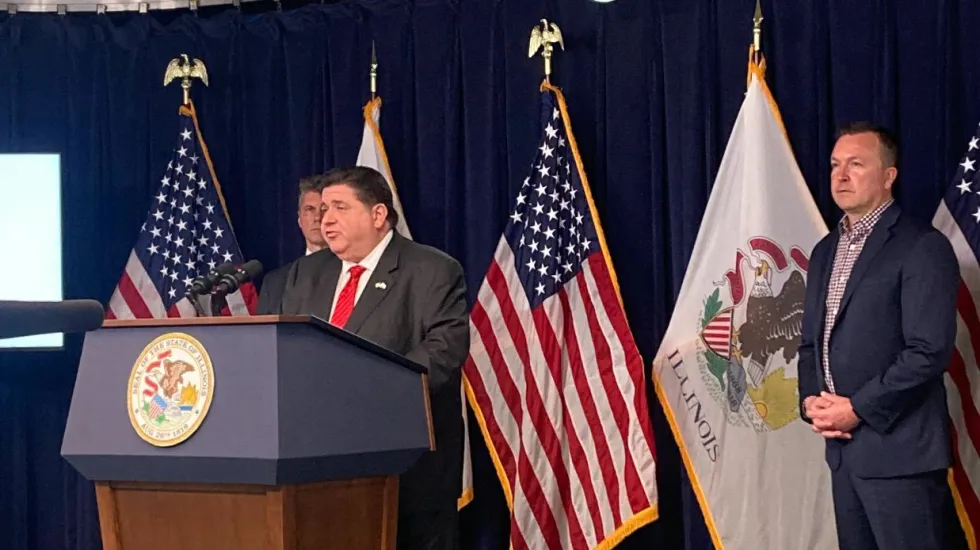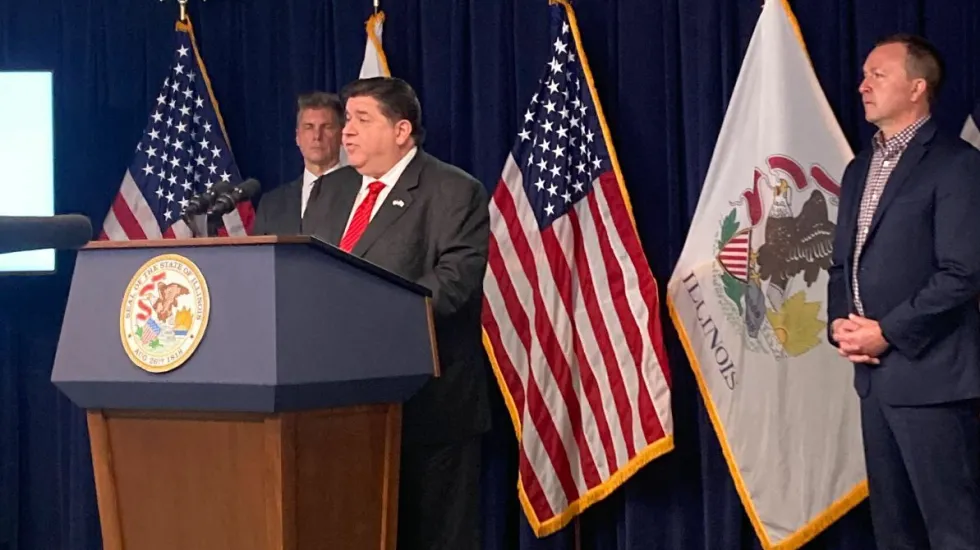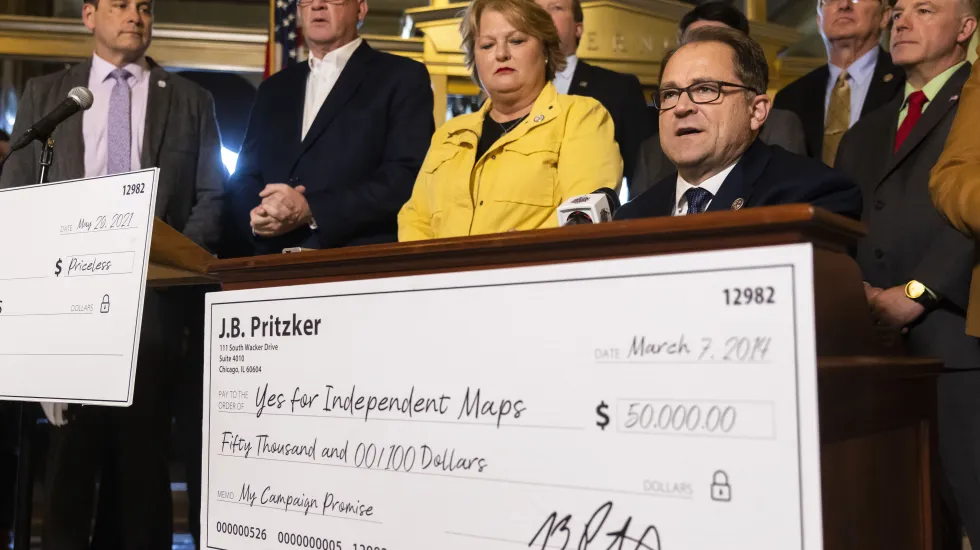
Two days after signing into law his fourth state budget, Illinois Gov. J.B. Pritzker on Thursday announced a bond rating upgrade from Moody’s Investor Services, the second in less than a year.
“Fiscal responsibility is paying off,” Pritzker said. “Illinois was in a deep hole in the years before I was sworn into the governorship, and together with the General Assembly, step by step, we are putting Illinois on firm fiscal footing.”
The Wall Street credit rating agency’s upgrade to Baa1 from Baa2 on the state’s outstanding general obligation bonds comes after Moody’s last upgrade in June 2021. S&P also upgraded the state’s rating to BBB in July 2021 and gave the state a positive outlook. Fitch Ratings has the state at BBB-minus but has assigned a positive outlook and is reviewing the latest budget.
Pritzker held a last-minute Chicago news conference, his second of the day, to take a victory lap over the upgrade. The Democratic governor, facing a reelection battle in November, has touted the state’s fiscal rating upgrades and debt paydowns during his tenure in at least one campaign TV ad.
“A credit upgrade means Illinois will likely pay a lower interest rate, saving taxpayers hundreds of millions of dollars in the coming years,” Pritzker said.
The governor credited the upgrade to the state’s reduction of its structural deficit four years in a row by paying down short- and long-term debt; the elimination of $17 billion in the unpaid bill backlog; the reduction of net pension liabilities by $15 billion and the addition of $500 million more into pension systems than was required by law and because of contributions made to the state’s rainy day fund.

A state’s bond rating is a way to measure its credit quality — a higher bond rating generally means the state can borrow at a lower interest rate. Moody’s said the upgrade “reflects the state’s solid tax revenue growth over the past year, which expanded its capacity to rebuild financial reserves and increase payments towards unfunded liabilities.”
The rating agency said the state is on track to close the fiscal year “with its strongest fund balance in over a decade,” and said the state’s increase in pension contributions shows an “increased commitment to paying its single-largest long-term liability.”
There are obvious challenges ahead, Moody’s warned, including heavy long-term liability and fixed cost burdens, which have put the state in a weaker financial position than other states. Moody’s also noted that the Illinois economy has for the past decade expanded at a slower pace than most states and will continue to do so due to its loss in population.
Last year the state notched its first bond rating upgrade in over 20 years.
Despite the latest upgrade, Pritzker’s foes, including Illinois Senate Republican Leader Dan McConchie, R-Hawthorn Woods, said the Democratic governor is ignoring the fact that this year’s budget included $16 billion in federal dollars.

“Should he remain in office next year, he is going to be confronted with a major hangover after the federal money dries up and state spending is at a record high,” McConchie said in a statement.
Pritzker denied that claim at his news conference, saying his signed budget already used lower revenue estimates.
“We still are coming out of a pandemic but significant infusions into the economy by the federal government are all across the nation,” Pritzker said. “But we do expect growth in the state, and we have planned for a lower level of revenue, and as a result, lower spending to meet the revenue that we’ve gotten.”







